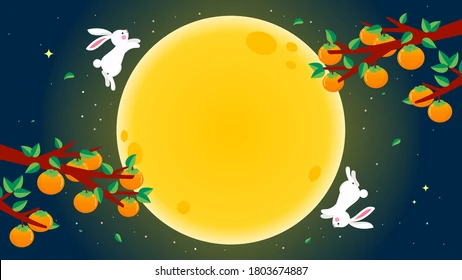South Korea has forever been a cultural and economic hub. With the development after the end of the Korean War, it became popular for its deeply rooted ethics in socialization through traditions. Since South Korea still uses the lunar calendar for multiple purposes like birthdays and traditional festivities, Chuseok being one of them is annually celebrated during the mid of lunar month.

Traditions are deeply rooted in culture. A society that stays together no matter the geographical distances, rides the ship of tradition. And there is nothing better than traditional or national festivities to celebrate unity. Chuseok or Hangwai is celebrated in mid-autumn annually, where people from across the country be it a big city or a small town, gather at their ancestral home located in the countryside. It is an event full of good wishes and happy times.
As it is a lunar festival, based on moon sightings, it is celebrated on different dates every year. This year it was celebrated from 10th-12th September.
Chuseok’s History:
Chuseok which translates to ‘autumn-eve’, is a major harvest festival, with a three-day holiday in both North and South Korea. Since it is celebrated during the lunar harvest, the harvest is offered to deities and ancestors. It is a popular belief that Chuseok originated during the reign of the Third King of the Kingdom of Silla as a shamanic ritual of harvest offering.
It is celebrated to honor the bountiful harvest, in the hope that next year would be better than this year. During this festival, ancestors are remembered and honored through different customs.

Customs of Chuseok:
Since this festival not only celebrates swift and fulfilling labor through healthy harvest but also seeks the blessings of the ancestors, it is customary to visit the gravesite and provide necessary help in the upkeep of the graves. There are some main customs performed by the ancestors and past generations:
Charye– during this custom, people hold memorial rites for the deceased, seeking their blessings, honoring the afterlife, and offering food which mainly includes freshly harvested rice, alcohol, and Songpyeon (half-moon rice cakes). Although food differs provisionally, these are the three main which are usually found on the ancestral rite table. After the offerings, family members enjoy a meal of japchae, bulgogi, Korean pancakes, and fruits.
Songmeyo and Beolcho: it is visiting the ancestral graves and cleaning these graves, respectively. It symbolizes dutiful descendants, who are readily available to pay respect to their past generations and do not shy away from the show of it. Society frowns upon those who do not perform this part of the ritual as food can be offered from anywhere, however, visitations and upkeep cannot.

Chuseok Foods:
South Korea is now popular for its traditional food through its enormous entertainment industry which highlights its culture and the essentiality of history related to edibles. Some of the main food items consumed during the celebration of Chuseok are Songpyeon, Hangwa, and Baekseju.
Songpyeon is a Korean traditional rice cake that when filled with walnuts, sesame seed, black beans, mug beans, cinnamon, pine nut, jujube, and honey, provides the shape of a half moon. It is eaten under a full moon, in the hope of a brighter future.
Hangwa is made up of rice flour, honey fruits, and roots where edible natural ingredients are used for taste, color, and texture. It is also consumed during birthdays, weddings, and other celebrations.
Baekseju is a major alcoholic beverage, made from freshly harvested rice. It is not only offered during memorial services but drank by the families with their food of Chuseok.

Gifts and Games of Chuseok:
Although in older times gift giving was not part of Chuseok, during the early 1960s, following the end of the Korean War, people started giving daily necessities. In modern-day South Korea, gifts are not only received by family members, and relatives but also by close friends, acquaintances, and business associates.
Games are a big part of this harvest festival since it is a jovial venture to enjoy together. Sports like Ssireum (Korean wrestling), Taekkyon, and Juldarigi (tug-of-war) are the main highlights of the event. A folk dance Ganggangsulae is also performed by the women in the evening.

Modern-day South Korea and Chuseok:
In the rush to follow the rituals and traditions, to celebrate the harvest, people plan ahead of time to reach their ancestral homes. It is a busy and expensive period where the transportation industry mainly flourishes. The tickets are reported to be sold out three months ahead of Chuseok and the highways are found packed with vehicles during the holiday week.
In South Korea, Chuseok is celebrated in a more western manner than what it initially started with. Although the spirit of the celebration remains the same, people focus on family gatherings as many factors cause them not to be together the most part of the year.













